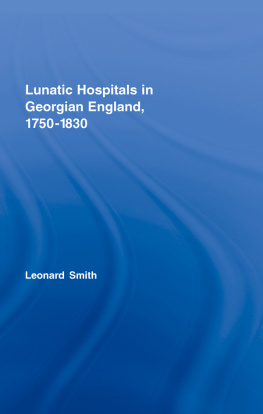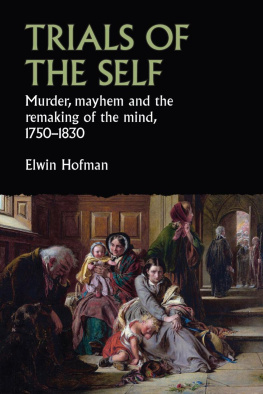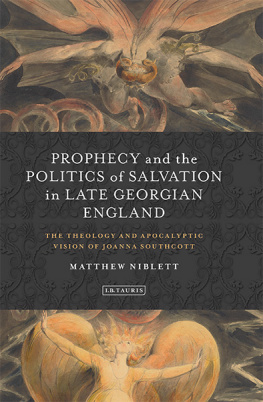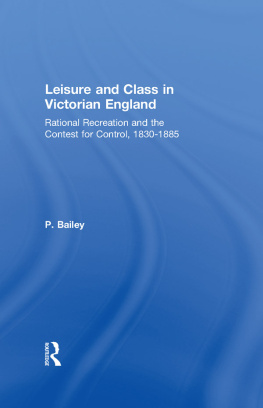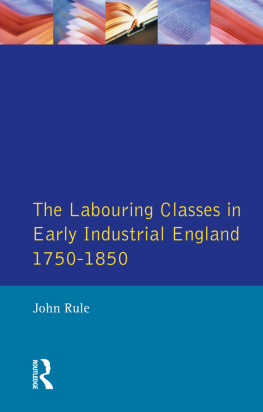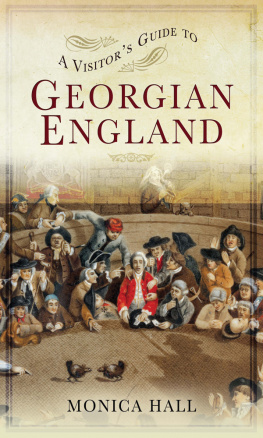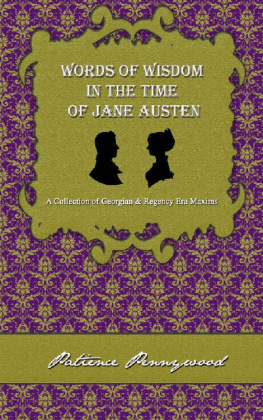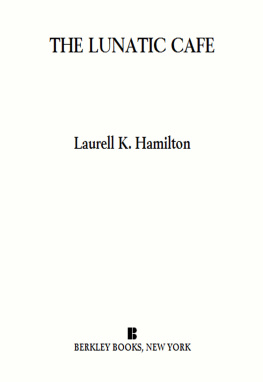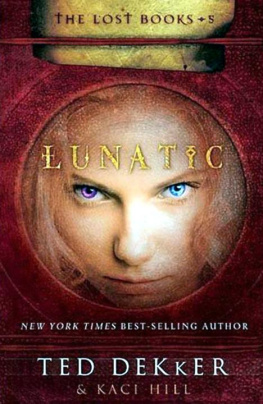Routledge Studies in the Social History of Medicine
EDITED BY JOSEPH MELLING, University of Exeter
AND ANNE BORSAY, University of Wales, Swansea, U.K.
1. Nutrition in Britain
Science, Scientists and Politics in the Twentieth Century
Edited by David F. Smith
2. Migrants, Minorities and Health
Historical and Contemporary Studies
Edited by Lara Marks and Michael
Worboys
3. From Idiocy to Mental Deficiency
Historical Perspectives on People with
Learning Disabilities
Edited by David Wright and Anne Digby
4. Midwives, Society and Childbirth
Debates and Controversies in the Modern Period
Edited by Hilary Marland and Anne Marie Rafferty
5. Illness and Healing Alternatives in Western Europe
Edited by Marijke Gijswit-Hofstra, Hilary
Maarland and Has de Waardt
6. Health Care and Poor Relief in Protestant Europe 15001700
Edited by Ole Peter Grell and Andrew Cunningham
7. The Locus of Care
Families, Communities, Institutions, and the Provision of Welfare since Antiquity
Edited by Peregrine Horden and Richard Smith
8. Race, Science and Medicine, 17001960
Edited by Waltraud Ernst and Bernard Harris
9. Insanity, Institutions and Society, 18001914
Edited by Bill Forsythe and Joseph Melling
10. Food, Science, Policy and Regulation in the Twentieth Century
International and Comparative Perspectives
Edited by David F Smith and Jim Phillips
11. Sex, Sin and Suffering
Venereal Disease and European Society Since 1870
Edited by Roger Davidson and Lesley A. Hall
12. The Spanish Influenza Pandemic of 191819
New Perspectives
Edited by Howard Phillips and David Killingray
13. Plural Medicine, Tradition and Modernity, 18002000
Edited by Waltraud Ernst
14. Innovations in Health and Medicine
Diffusion and Resistance in the Twentieth Century
Edited by Jenny Stanton
15. Contagion
Historical and Cultural Studies
Edited by Alison Bashford and Claire Hooker
16. Medicine, Health and the Public Sphere in Britain, 16002000
Edited by Steve Sturdy
17. Medicine and Colonial Identity
Edited by Mary P. Sutphen and Bridie Andrews
18. New Directions in Nursing History
Edited by Barbara E. Mortimer and Susan McGann
19. Medicine, the Market and Mass Media
Producing Health in the Twentieth Century
Edited by Virginia Berridge and Kelly Loughlin
20. The Politics of Madness
The State, Insanity and Society in England, 18451914
Joseph Melling and Bill Forsythe
21. The Risks of Medical Innovation
Risk Perception and Assessment in Historical Context
Edited by Thomas Schlich and Ulrich Trhler
22. Mental Illness and Learning Disability Since 1850
Finding a Place for Mental Disorder in the United Kingdom
Edited by Pamela Dale and Joseph Melling
23. Britain and the 191819 Influenza Pandemic
A Dark Epilogue
Niall Johnson
24. Financing Medicine
The British Experience Since 1750
Edited by Martin Gorsky and Sally Sheard
25. Social Histories of Disability and Deformity
Edited by David M. Turner and Kevin Stagg
26. Histories of the Normal and the Abnormal
Social and Cultural Histories of Norms and Normativity
Edited by Waltraud Ernst
27. Madness, Architecture and the Built Environment
Psychiatric Spaces in Historical Context
Edited by Leslie Topp, James E. Moran and Jonathan Andrews
28. Lunatic Hospitals in Georgian England, 17501830
Leonard Smith
29. Women and Smoking since 1890
Rosemary Elliot
Also available in Routledge Studies in the Social History of Medicine series:
Reassessing Foucault
Power, Medicine and the Body
Edited by Colin Jones and Roy Porter
| Routledge | Routledge |
| Taylor & Francis Group | Taylor & Francis Group |
| 711 Third Avenue | 2 Park Square |
| New York, NY 10017 | Milton Park, Abingdon |
| Oxon OX14 4RN |
2007 by Leonard Smith
Routledge is an imprint of Taylor & Francis Group, an Informa business
10 9 8 7 6 5 4 3 2 1
International Standard Book Number-10: 0-415-37516-9 (Hardcover)
International Standard Book Number-13: 978-0-415-37516-0 (Hardcover)
No part of this book may be reprinted, reproduced, transmitted, or utilized in any form by any electronic, mechanical, or other means, now known or hereafter invented, including photocopying, microfilming, and recording, or in any information storage or retrieval system, without written permission from the publishers.
Trademark Notice: Product or corporate names may be trademarks or registered trademarks, and are used only for identification and explanation without intent to infringe.
Library of Congress Cataloging-in-Publication Data
Smith, Leonard D., 1947-
Lunatic hospitals in Georgian England, 1750-1830 / Leonard Smith.
p.;cm. -- (Routledge studies in the social history of medicine ; 28)
Includes bibliographical references and index.
ISBN 978-0-415-37516-0 (hardback : alk. paper)
1. Psychiatric hospitals--Great Britain--History--18th century. 2. Psychiatric hospitals--Great Britain--History--19th century. I. Title. II. Series.
[DNLM: 1. Hospitals, Psychiatric--history--England. 2. History, 18th Century--England. 3. History, 19th Century--England. WM 27 FE5 S654L 2007]
RC450.G7S633 2007
362.210941--dc22
2006037464
Visit the Taylor & Francis Web site at
http://www.taylorandfrancis.com
and the Routledge Web site at
http://www.routledge.com
To those who have experienced the ravages of insanity and to those who have striven to bring relief.
Like so many aspiring historians, I owe a very considerable debt to the late Roy Porter. I never had the privilege of being a student of Roys, although I did hear his erudite lectures and presentations on several occasions. I was one of a remarkably large number of people who received direct assistance from him in the form of references, advice, encouragement, and constructive criticism. That assistance was invaluable in the completion of my previous book, Cure, Comfort and Safe Custody; Public Lunatic Asylums in Early Nineteenth-Century England. It was largely the inspiration gained from Roys work that stimulated me then to take my researches backwards into the eighteenth century.
There are many people whom I would also like to thank for encouragement and advice. Particular mention should go to one of Roy Porters foremost disciples, Jonathan Andrews, whose own excellent work has shown how disparate eighteenth-century sources can be best utilised in reconstructing a realistic picture of people and events. Considerable gratitude is also due to Joseph Melling, who gave his editorial backing to the preparation of this book and then much helpful criticism and advice in the latter stages towards its completion.
The Centre for the History of Medicine at the University of Birmingham Medical School has provided an invaluable academic base, and my gratitude goes to its director, Bob Arnott, and also to Jonathan Reinarz for helpful discussions and comments on chapter drafts. Other people elsewhere who have assisted, advised or encouraged in different ways include Chris Philo, Pamela Michael, Anne Digby, Christine Stevenson, Hilary Marland, Jane Adams, David George, Michael Brown, Peter Bartlett, David Wright, Andrew Scull, Akihito Suzuki, Elaine Murphy, Matthew Hilton, Tom Harrison, Wendy Webster, Leonard Schwarz, and Daniel Smith.

